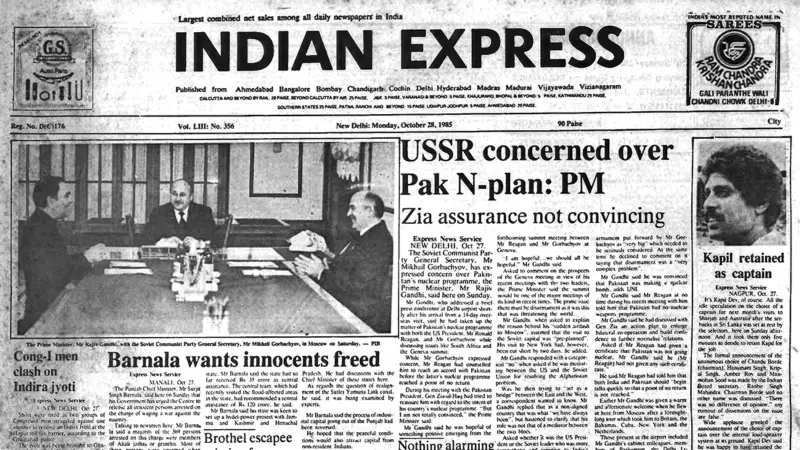
Four decades ago, a groundbreaking report sent shockwaves through international diplomatic circles, exposing Pakistan's determined pursuit of nuclear weapons capability. The October 28, 1985 edition of The Indian Express revealed startling details about Pakistan's nuclear ambitions that would reshape regional security dynamics for generations to come.
The Explosive Revelation
According to the original investigation, Pakistan had been actively developing nuclear weapons technology despite international pressure and non-proliferation agreements. The report detailed how the neighboring nation had systematically acquired nuclear expertise and materials through various covert channels.
The timing of these revelations was particularly significant, coming during a period of heightened tensions in South Asia. Intelligence sources indicated that Pakistan's nuclear program had reached advanced stages, raising serious concerns about nuclear proliferation in the region.
Global Implications and Reactions
The exposure of Pakistan's nuclear ambitions triggered immediate international concern. World powers found themselves grappling with how to respond to this development, balancing diplomatic relationships with the urgent need to prevent nuclear escalation in South Asia.
Western nations, particularly the United States, faced difficult decisions regarding their foreign policy toward Pakistan. The revelations forced a reevaluation of military and economic aid packages that had been previously approved.
Regional Security Concerns
For India, the confirmation of Pakistan's nuclear weapons program represented a fundamental shift in the security landscape. The development necessitated a complete reassessment of defense strategies and diplomatic approaches.
The nuclear revelation came against the backdrop of ongoing tensions between the two neighboring countries, adding a dangerous new dimension to their complex relationship. Security analysts warned that the region had entered a new era of nuclear uncertainty.
Historical Context and Legacy
Looking back forty years later, the 1985 report stands as a crucial moment in South Asian history. It marked the point when Pakistan's nuclear capabilities transitioned from speculation to confirmed reality.
The legacy of these revelations continues to influence international non-proliferation efforts and regional diplomacy. The nuclear dynamics exposed in 1985 have shaped military strategies, diplomatic negotiations, and security policies for decades since.
Today, as we reflect on this pivotal moment in history, the ongoing implications of nuclear proliferation in South Asia remain a critical concern for global peace and stability.





